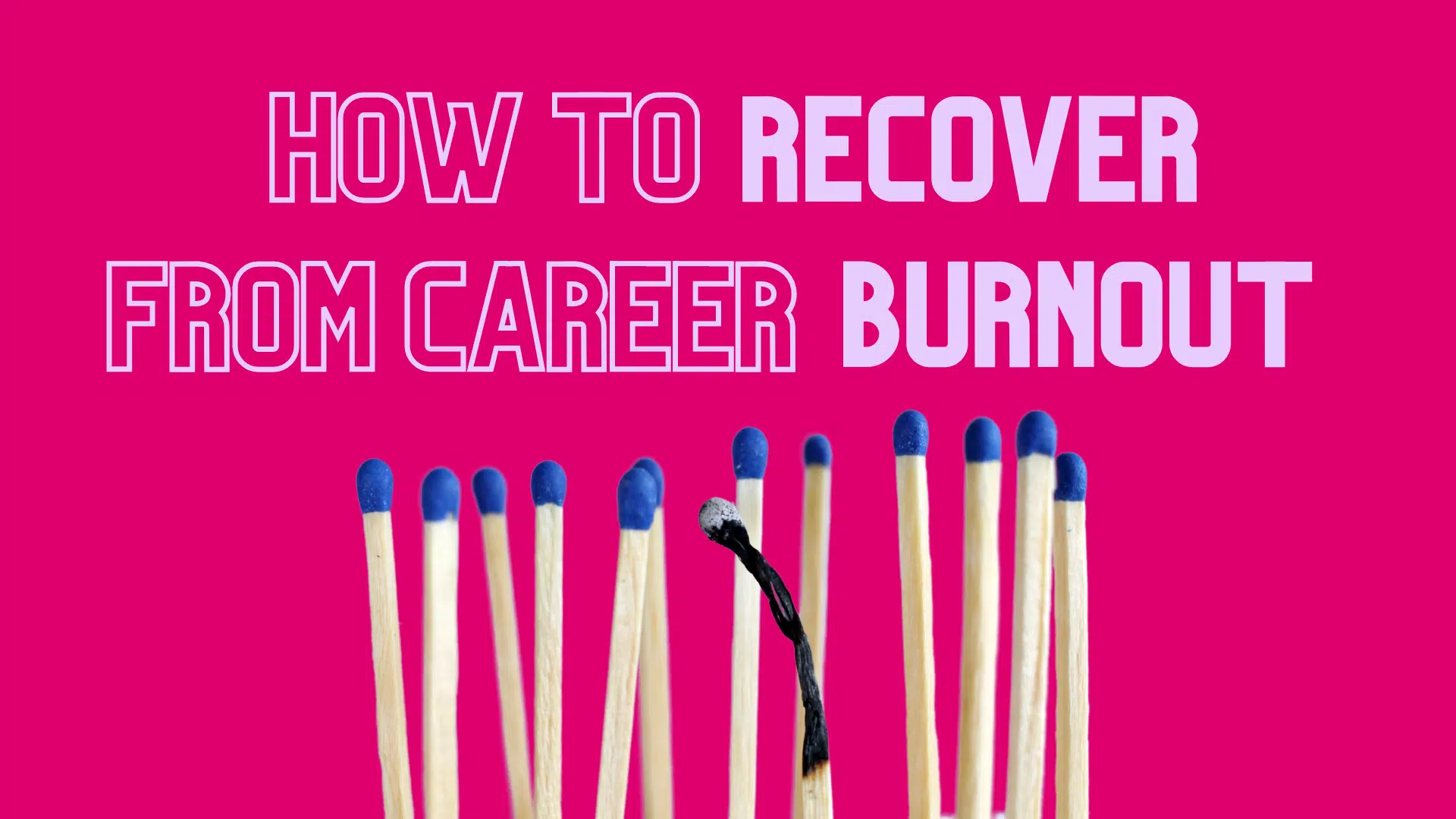Career burnout is pretty self-explanatory. It’s when we burn ourselves out to the point where we have lost the love for our work, it all seems a bit pointless, and we don’t have the energy to even flick on the switch of the kettle, never mind ploughing through a full day of work.
What are the symptoms?
Common symptoms of burnout include:
- Feeling constantly tired and drained.
- A lack of enthusiasm and motivation for anything.
- Anxiety and worrying about everything.
- Insomnia, loss of appetite, and depression
- A loss of confidence in yourself.
- Getting sick more often and for longer.
Why does it happen?
Career burnout can happen for several reasons, and it’s usually due to a couple of reasons rather than a single cause. Here are a few reasons why you may be suffering from burnout:
- You’re not doing something you really love
- You’ve lost sense of your purpose and your ‘why’
- Your life priorities have changed
- Your surroundings have changed
- You’ve changed – but your role hasn’t
- You don’t fit in your company culture
- You don’t get on with colleagues
- You’re being held back or your own beliefs are holding you back.
For many, the pandemic made people realise that they weren’t doing what they love or what they were doing just didn’t fit with reality anymore. This can lead to a lack of motivation and drive, and in extreme cases, anxiety and depression.
How to recover from burnout
If you’re suffering from career burnout, use this opportunity to really understand the cause and make impactful changes. Here are a few steps you should start with:
- Identify the cause of your burnout – is it you, your job, your company or your lifestyle? For example, are your personal needs being met with your work? Is your current role fulfilling enough? Do you fit the company culture and get on with colleagues? Does your current job fit with your lifestyle and priorities?
- Start making changes – work out what you would rather do instead (either by making your own lists or using online tools). Consider changing careers or approaching your manager to make some role changes. If your lifestyle has changed (e.g. if you’ve recently had a baby), find ways to adapt your role, to work more flexibly, and balance your priorities.
- Always prioritise your self-care – you should be doing this consistently anyway, but especially if you’re suffering from burnout. Make sure to take a break (and actually switch off). Try to have at least a week where you sleep for 7-8 hours a night, you exercise for 30 minutes a day, and you eat and drink healthier things that give you the energy you need. When you’ve done this, try to make this your normal routine.
3 magic steps
That really is it. Don’t suffer from burnout any longer; waiting will only make you ill.
To recover from burnout, identify what is causing it, don’t be afraid to make the necessary changes, and always look after yourself. Change is scary but in this case, it is good; it will ensure your happiness in what you do on a daily basis and for a very long time to come.




